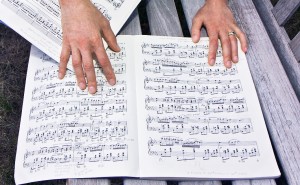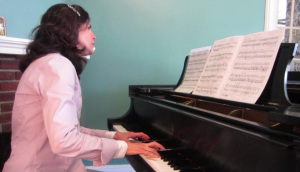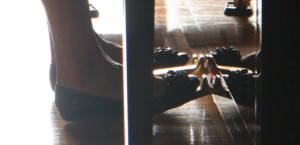For years, Ricker Choi, an amateur pianist from Canada, wanted to play a concerto with an orchestra, a dream shared by many students of adult piano lessons. In 2010, Ricker blazed into Berlin and advanced to the final round of the International Piano Amateur Competition, which called for the six finalists to play a piano concerto with the Sibelius Orchestra Berlin, led by the conductor Stanley Chia-Ming Dodds. Ricker’s dazzling performance, excerpted in the video below, garnered him second place. His experience gives an insider’s perspective on the elite world of amateur piano competitions, and perhaps even more interestingly, reveals strategies for leaping from solo performance to a concerto with an orchestra.
How did you prepare for playing with an orchestra in the competition’s final round?
I was given one 50-minute rehearsal with the orchestra in a practice hall. I was nervous because Liszt’s Totentanz has many tempo changes and entrances that have to be synchronized between the piano and the orchestra. In the past, when I had worked with an accompanist who played the orchestra’s part on the piano, we had many rehearsals, so we knew what to expect.
I wanted to be as comfortable as possible with listening to the orchestral voices and watching the conductor for entrance cues, so I sat through the other finalists’ rehearsals of Totentanz. (Four of the six finalists chose to perform Liszt’s Totentanz for the final round.) This was somewhat grueling, but it gave me the benefit of an extra mental rehearsal.
Your rehearsal must have gone well with the extra mental preparation.
Yes, but there were challenges that I did not expect, such as how to come in at the right moment. I found it daunting to have to memorize within a short rehearsal all the entrance cues. Sometimes the conductor wanted a full beat of rest before an entrance. Other times he asked me to watch him, so that the orchestra and I would release at the same time. One very complicated entrance required me to release the previous chord at his signal, wait for him to conduct one quick rest, and then enter together with the orchestra on cue for the next beat. All of this was to take place within a few quick seconds.
Also, I was just not used to watching the baton. Often I would enter when it was still in midair, instead of when it hit the bottom of the swing. I also found it hard to hear the exact moment the strings and the brass started a note. I was unsure if I should follow the conductor, or follow what I heard. The conductor told me to play with an extremely steady rhythm, and the orchestra would be in sync with me. I simply had to trust myself.
What else did you do to prepare for the performance?
Each of the finalists was also given a trial run with the orchestra in the Berlin Philharmonic, the 2,500-seat hall that would be the concert venue. When I sat in on the other finalists’ trial runs, I realized in this vast hall, sound had to be projected to be heard. Even in the slow middle section, to really make the melody sing, I would need to project the top note quite a bit. This even applied to passages written in the very soft pianissimo. I understood that I would need to project all top melodies, as much as in the mezzo forte or even forte range.
Sometimes the strings sounded a little softer than I thought they would when I had listened from the audience seat. At other times the orchestra was so loud that I could not hear my own sound at the piano. It was very disorienting!
Before my actual performance, I also had two full hours of backstage time all by myself, with a nine-foot Steinway, to warm up. In order to produce a huge sound to fill the hall, I practiced with a closed piano lid (not even the small lid was opened), and I focused on those sections that required a big sound. I realized that I had to use a lot more arm and body weight.




Performing a piano concerto as an “amateur”, what an amazing accomplishment!